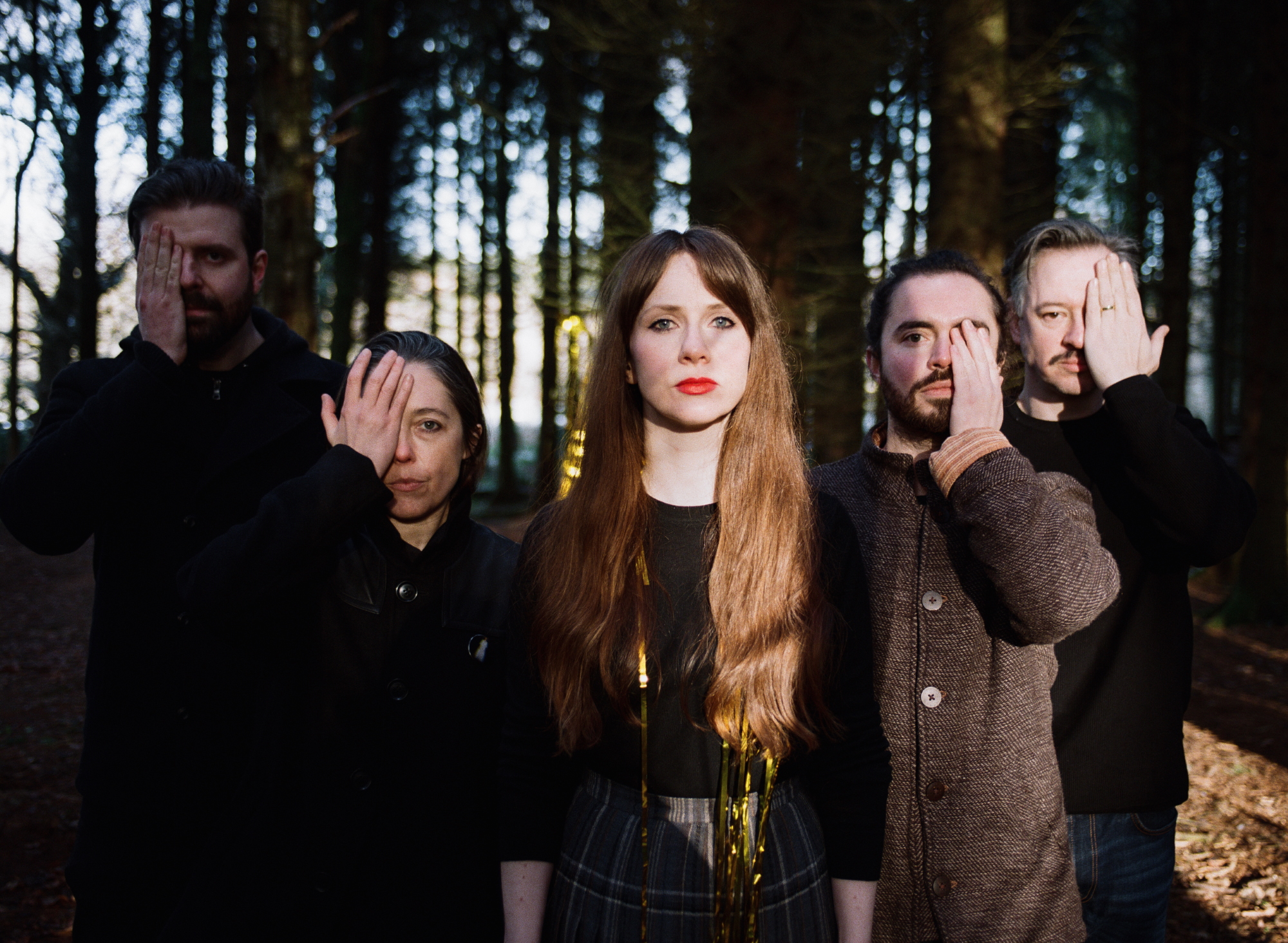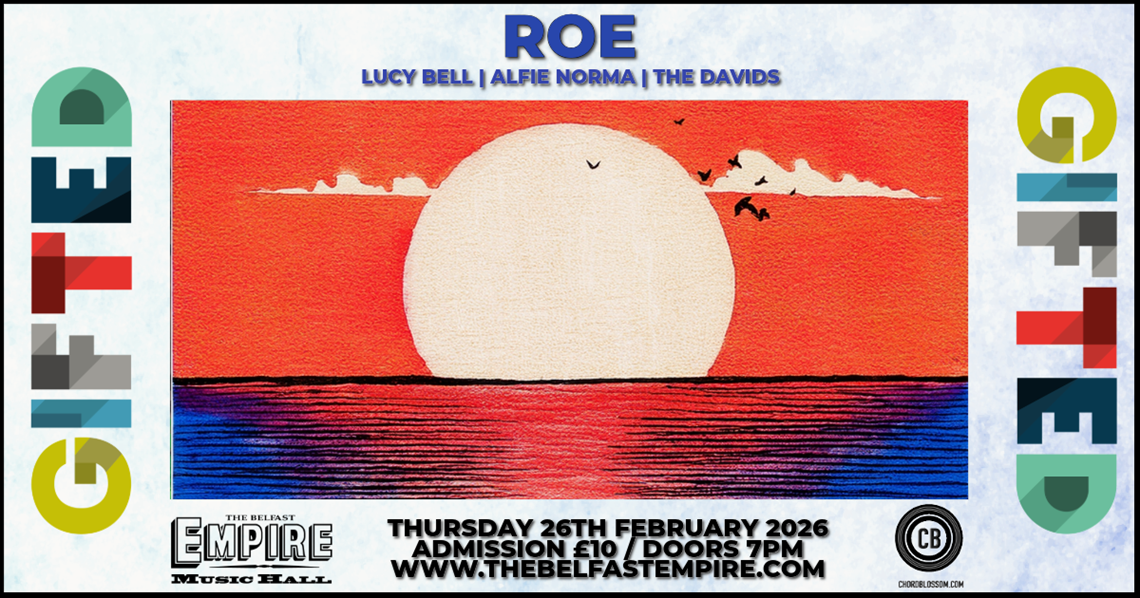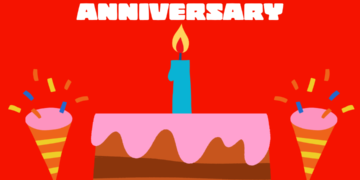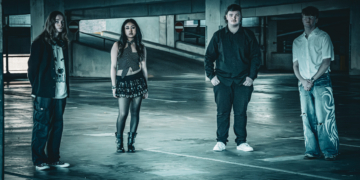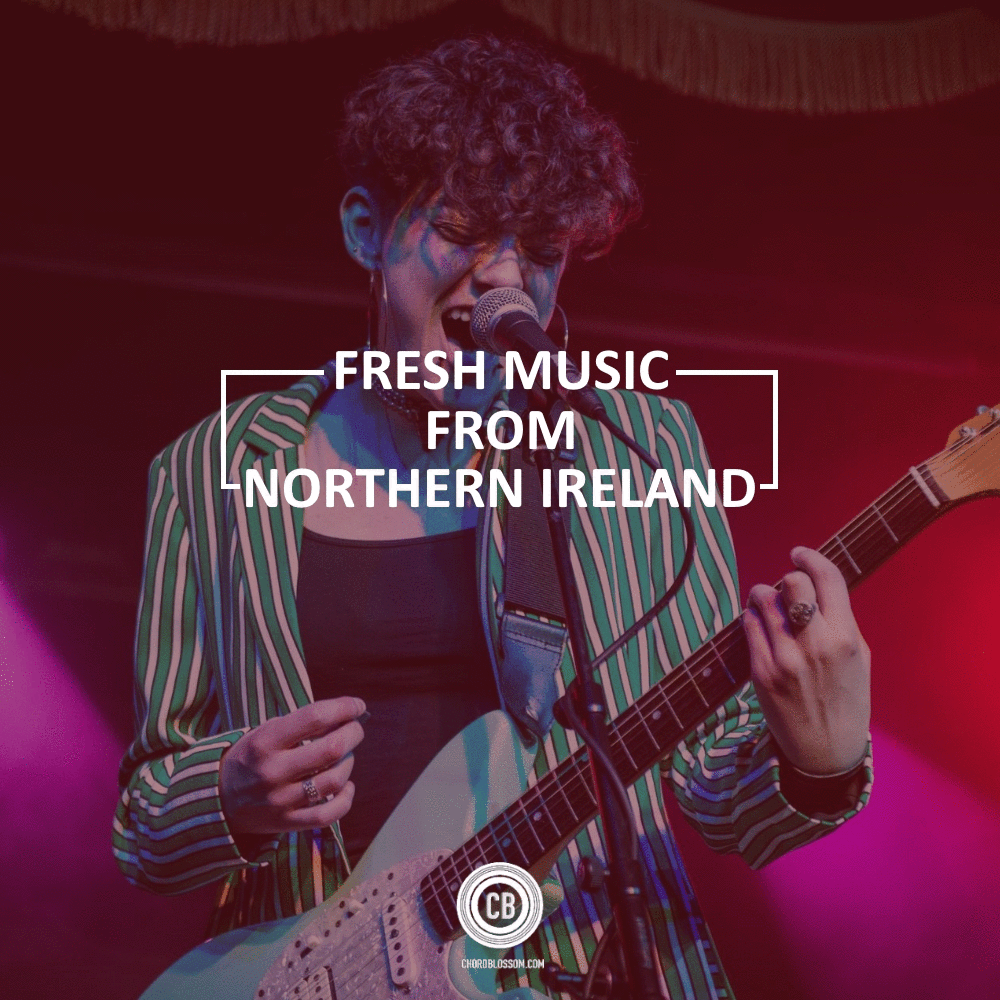Navigating waiting rooms and accidental muting, Lyndsey McDougall and I chat dystopia before we chat music. The weirdness of ‘e-meeting’; the burnout; the idiosyncratic but all-important ritual of putting on perfume before a Zoom meeting. All of this contextualised the release of her band New Pagans’ debut album The Seed, The Vessel, The Roots and All on new label Big Scary Monsters back in March, a year almost to the day since we saw the ‘old normal’. The Seed… is a surge of livelihood, an anthology of stories about lives lived. ‘It’s Darker’ is personal, while tracks like ‘Lily Yeats’ tell the tales of those that history casts a shadow over. “We hear about the Yeats brothers all the time, and It’s nice to hear about the sisters.’’
McDougall could be mistaken for living many lives herself. New Pagans singer and lyricist; PHD student; visual artist; mother – and to some, it’s apparently a revelation that the former and the latter can exist in tandem. “That’s definitely something I’m going to keep talking about, because it makes people uncomfortable. Not usually young women, but I can tell that some interviewers don’t want to talk about motherhood and rock music!”, she laughs.
Three years ago, when she and her partner, New Pagan’s guitarist Cahir O’Doherty, found out that they were having their first baby, Maisie, they both “kind of freaked out”, says the singer. “We thought we’d have to stop the band. But after a couple of days we thought “No we don’t, it’ll be fine, we’ll keep going.” And it’s really difficult, but it shouldn’t stop you from being creative in any way.” In fact, their single ‘Harbour’ is about “all the emotions you feel during pregnancy.”
The Seed… is rich with experience, pulling at the fibres of McDougall’s life to inform its own tapestry. Her PHD research focusing on women in embroidery seeps into New Pagans’ music in essence and spirit in voicing stories that history and popular culture tactically leaves out. “Most of those women are unknown. Particularly I’m looking at embroideries left in the Churches in Ireland and the Masonic Order”, the artist explains. Her work hopes to discuss the decisions and reasons that these women made embroideries for male-dominated institutions. “Often it’s because it’s a way of showcasing their work as artists. We see it as a service, but also they were servicing themselves. It’s interesting to look at women’s history in a different way – not as subservient, but as people who did make choices that were for themselves as much as they were for other people.”
Making sure that the unique experiences of women within music are heard is sometimes at war with the sentiment that gender isn’t a genre. McDougall understands why some don’t engage with this line of conversation but is happy to herself, having witnessed it evolve since she moved to Belfast to pursue music at 18. “At that point it felt like all the doors were closed to me. Any time I tried to get close to other musicians – and unfortunately it was all male musicians I knew at that time – they would just say “Oh that sounds really good, Lyndsey. Keep going!”” she mimics, accompanied by a condescending thumbs up.
“But nobody actually wanted to work with me or write songs with me! Like “That’s cute, your voice is lovely,” or comments like that, but never “Yeah, let’s write a song together. Be in my band!” None of that. It was very much a boy’s club in that period of time,” she continues, acknowledging that the context within which she formulated her thoughts on the matter in Belfast 15 years ago is a very different one to, say, contemporary London. “Maybe the generation of women coming up after us aren’t going to need to discuss it as much, but for me not to discuss it would feel like a disservice to how I feel about it. I think it’s something to be really proud of. And being older as well, that’s worse than being a woman in some people’s eyes – you know, less than.”
Alongside motherhood, place manifests across McDougall’s various art forms. In her visual work, each embroidery becomes delicately textured portrait of Ireland’s wild land and flower. “The landscape is one of the things that inspires me the most. And the people – there’s just this wonderful friendliness. I’m proud of being from here, and I think that’s reflected in our artwork as well,” she says, holding her band’s LP up to show bassist Claire Miskimmin’s collage handiwork. “She loves the landscape too, and lot of the videos we do are out in the beside old ruins or a monastery or something. It’s not conscious – we just kind of do it and then reflect on it after,” says McDougall.
In song, her lyrics tackle its history, including bigotry and abuse on ‘Christian Boys’. She muses on linking music and politics: “For a long time my stance was not to ever talk about it or discuss it in relation to any of my art practices. But now I feel like we’ve had enough space from the Good Friday Agreement that we’ve had enough time to heal and think, and we can start to use the experiences we’ve had as people to comment on history and learn about it and not make the same mistakes again.”
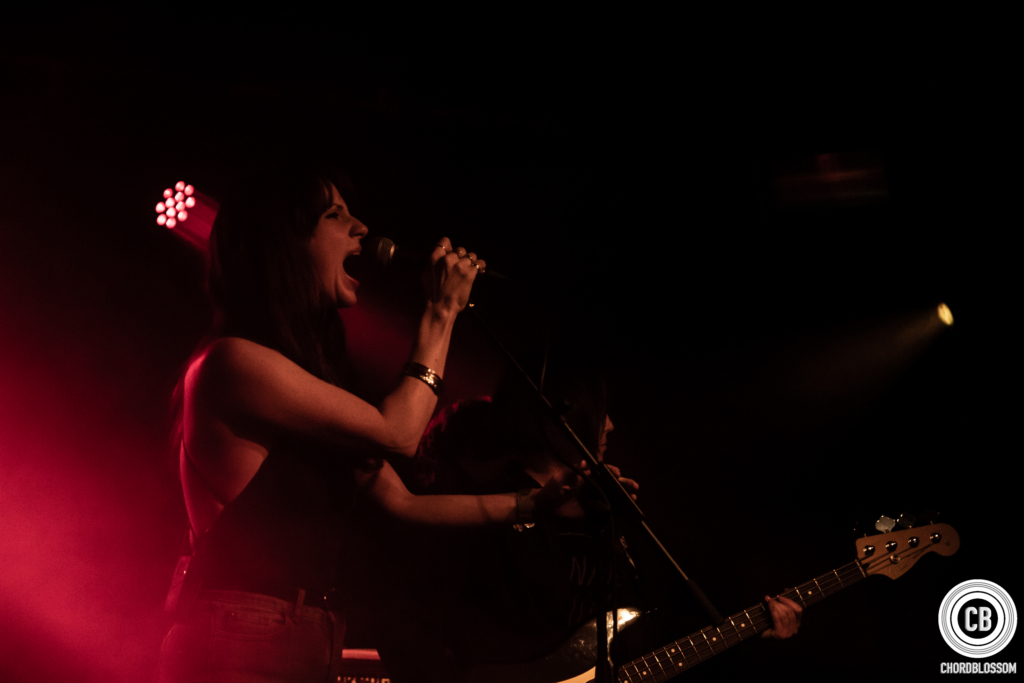
“We’re a post-conflict community. And even if people don’t comment on it, that’s nearly a political stance in itself. People are finding they want to reconnect with the past even to figure out how the feel about it. Growing up in it you kind of blocked it out. I mean, Cahir has stories of coming out of his house and seeing English soldiers in his garden and they’d let him, as a kid, look down the barrel of their guns. It was a warzone in some places, and that’s a really unique perspective to have. I think as well that’s why we’re protective over our community, and protective over our peace. Because we don’t want to go back, we want to go forward. And we’ve had years now of seeing how good it is, and how much the arts can thrive. Restaurants and shops, even. It’s exciting. Nobody wants to go back, or very few do. The music community reflects that – bands like Problem Patterns and Gender Chores, brilliant that they’re challenging the politicians. I actually think that it works if everybody challenges them, especially about women’s rights,” she affirms.
At the beginning of the pandemic, New Pagans felt ‘lost’, with the halt in live music removing their lifeblood in various forms of currency: loss of income, but more so the loss of audience connection. “It’s like running on no food, that’s what it feels like. You’re drained and putting so much into it without getting the kick of a live show. That’s what we do it for, that’s why you’re in a band. So that’s not there, but we’re doing okay and we’re surviving, so that’s the main thing,” she says.
The livestreams are fine: “I go into a weird zone anyway, so it doesn’t matter if there’s one person watching me or a million. But the moments in between songs when you glance out and there’s nobody there, and the camera guy’s just staring at you – you’re kind of just like… [cringe].” But the artist is positive about new ways post-pandemic, with musicians being honest about the lack of lucrative streaming, and fans recognising the arts for what it is – essential work. “We maybe won’t complain if we have to pay a tenner to see a local band, cause that’s only two pints and they’ve worked their asses off all week to be able to perform that night. Conscious entertainment I would call it. You’re consciously thinking about where your money is going to be best spent. Supporting local is the way forward. We want venues that are locally run, supporting local bands, but bringing big bands in too. I’m very optimistic, I think it’s going to be wonderful when it all opens up.”
New Pagans‘ debut album, The Seed, The Vessel, The Roots and All was released on 19th March 2021 and is available for purchase via their Bandcamp page.

